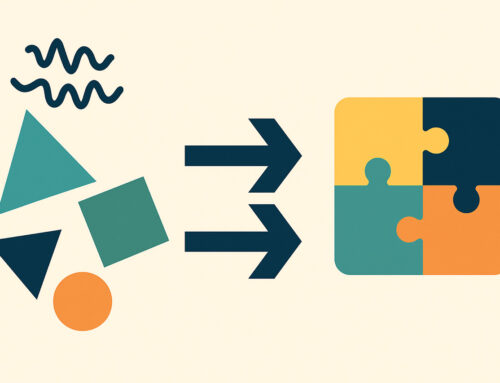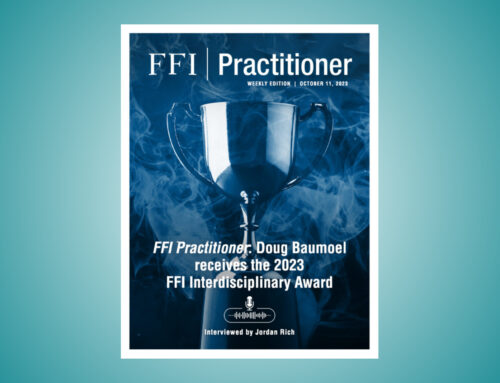When the Seven Deadly Sins Meet the Family Enterprise
How Human Tendencies Shape Family Enterprise Dynamics Across Generations
By Rikk Larsen
Estimated read time: 7-8 mins
Across cultures and faith traditions, from Christianity to Judaism, Islam, and Hinduism, societies have long catalogued the human tendencies that erode trust, distort judgment, and disrupt community. Far from being merely religious artifacts, these lists of “sins” endure because they capture universal patterns in human behavior. And nowhere are these patterns more visible—or more consequential—than in the family enterprise.
Family businesses sit at the intersection of identity, power, intimacy, and wealth. They are both economic engines and emotional ecosystems. The very traits that fuel entrepreneurial achievement—confidence, ambition, loyalty, determination—can, when unchecked, morph into behaviors that corrode relationships, weaken governance, and jeopardize continuity.
This article uses the classic Seven Deadly Sins not as moral indictments, but as a practical lens for understanding how predictable behavioral tendencies manifest in family business systems—and what families can do to transform these risks into opportunities for growth.
Pride: When Confidence Becomes Blindness
Definition: An inflated sense of one’s own abilities or importance.
Founders often need outsized confidence to build something from nothing. Pride becomes dangerous, however, when leaders see themselves as irreplaceable, dismiss dissent, or fail to mentor successors. Over time, pride can restrict innovation, silence next-generation talent, and create a brittle leadership pipeline.
Healthy antidotes:
- Normalize shared decision-making and cross-generational collaboration
- Celebrate team achievements, not just individual heroics
- Build leadership development into the fabric of the enterprise
Greed: When Stewardship Gives Way to Entitlement
Greed in a family enterprise rarely looks like overt hoarding. More often, it shows up as unclear compensation, disproportionate perks, or older-generation leaders holding roles long after they should have transitioned out. In families with wide age ranges, early arrivals often capture the first (and sometimes only) leadership opportunities, leaving younger members with limited pathways.
Dennis Jaffe’s work in Borrowed from Your Grandchildren popularized the idea of evaluating choices through a three-generation lens. This perspective helps families recognize short-term excesses and align decisions with long-term stewardship.
Healthy antidotes:
- Transparent compensation frameworks
- Fair and accessible leadership pathways for all qualified family members
- Stewardship principles embedded in governance documents
Lust: When Desire Overrides Discipline
Definition: Inordinate or misplaced desire; lack of restraint.
Family enterprises can unintentionally create ideal conditions for destructive behavior. Wealth, travel, autonomy, and family protection can form a shield around substance abuse, infidelity, or other boundary-violating actions. Without accountability, small breaches can escalate quickly.
Healthy antidotes:
- Clear behavioral and ethical expectations for all family members
- Access to confidential support systems
- Consequences that are real, consistent, and applied compassionately
Envy: When Comparison Undermines Collaboration
Definition: Resentful longing for someone else’s status, possessions, or opportunities.
In family enterprises, definitions of “fairness” vary depending on the hat a person wears: owner, employee, or relative. Owners may envy compensation that employees receive; employees may resent ownership privileges; family members outside the business may feel marginalized or excluded. Even high-performing next-gens can envy peers whose careers seem more glamorous or financially rewarding.
Ambiguity fuels envy. Transparency diffuses it.
Healthy antidotes:
- Objective criteria for employment, ownership, and advancement
- Open communication about expectations, privileges, and responsibilities
- Career support for next-gens, both inside and outside the enterprise
Gluttony: When Excess Weakens Resilience
Definition: Overconsumption; indulgence beyond what is needed.
Affluent families can overuse financial resources to avoid discomfort, conflict, or difficult decisions. When money becomes the universal problem-solver, families risk weakening their capacity for resilience, self-regulation, and wise decision-making.
Healthy antidotes:
- Encouraging experiential learning and earned success
- Teaching financial literacy and disciplined decision-making
- Designing governance structures that reward effort, not consumption
Wrath: When Emotion Overrides Reason
Definition: Uncontrolled anger or indignation.
Anger is rarely a primary emotion—it often masks fear, disappointment, or frustration. In families, unresolved anger becomes especially corrosive because relationships are lifelong. Poorly managed conflict spills into business decisions, strategic discussions, and succession planning.
Healthy antidotes:
- Emotional regulation training for leaders and next-gens
- Conflict-management processes embedded in governance
- Norms that differentiate passionate debate from personal attack
Sloth: When Potential Goes Undeveloped
Definition: Apathy; failure to apply one’s talents.
Sloth in family enterprises often stems from entitlement or unclear expectations. A next-gen may “show up” for long hours yet contribute little of value; another, equally capable, may never be challenged to develop their skills.
Without clear performance standards, even hardworking individuals may drift.
Healthy antidotes:
- Defined roles, responsibilities, and performance metrics
- Merit-based employment and advancement
- Development pathways that stretch—not shelter—the next generation
How These Sins Show Up in Governance
These behavioral tendencies rarely appear in isolation. Pride fuels envy; envy fuels wrath; greed amplifies gluttony. In practice, they manifest as predictable governance failures:
- Lack of accountability: Family members are held to different standards than non-family employees
- Poor communication: Emotional history clouds professional dialogue
- Conflict avoidance: Difficult conversations are postponed until they explode
- Succession ambiguity: Delayed decisions create uncertainty and tension
- Unclear roles and boundaries: Overlap breeds confusion; gaps breed resentment
- Resistance to change: Tradition becomes a shield against necessary innovation
- Lack of shared vision: Without alignment, families drift instead of lead
- No strategic plan to achieve that vision: Good intentions fail without structure
Recognizing these patterns early allows families to correct course long before crises emerge.
Cultivating the Counter-Virtues
Every tradition that names sins also teaches the virtues that counteract them. In family enterprise, these virtues serve as pillars of continuity:
- Humility counters pride
- Stewardship counters greed
- Discipline counters lust and gluttony
- Generosity and transparency counter envy
- Emotional regulation counters wrath
- Purpose and contribution counter sloth
Families that practice these virtues, intentionally and consistently, build systems that outlast individuals and crises alike.
Conclusion: Imperfection Is Inevitable. Decline Is Not.
No family enterprise is free from the human tendencies the Seven Deadly Sins describe. The goal is not perfection but awareness. When families treat these tendencies as signals rather than failures, they can respond with clarity, structure, and compassion.
At their best, family enterprises model resilience across generations. They learn, adapt, and grow stronger through self-reflection. By cultivating virtues, building robust governance, and embracing the work of continuous improvement, families can transform even their failings into sources of wisdom and strength.
When families commit to this journey, they don’t just preserve a business, they build a legacy.
Stay in the Know
Get our latest articles, tips, and insights delivered straight to your inbox.
Share this Insight, choose your platform!
About Us
Continuity Family Business Consulting is a leading advisory firm for enterprising families. Using a full suite of service capabilities, we help families prevent and manage the single greatest threat to family and business continuity: conflict. It is through this lens that we advise our clients and build customized strategies for succession planning, corporate governance, family governance, and more. We help families improve decision making, maximize potential and achieve continuity. To inquire, contact us.












